Description
ABSTRACT
The Liberalisation of Locus Standi in Environmental Cases in Nigeria: An Appraisal of the Supreme Court’s Decision in Centre for Oil Pollution Watch v NNPC
Adeniyi I. Olatunbosun* and Kingsley Osinachi N Onu**
Acts of environmental degradation are a daily occurrence in our society. The environment and its inhabitants suffer the negative effects of the unwholesome use of the environment by man. Victims of these environmental hazards are not allowed by law to resort to self-help in ventilating their grievances; hence the need to resort to courts of competent jurisdiction. Section 6 (6) (b) of the 1999 Constitution of the Federal Republic of Nigeria vests on the courts the power to hear disputes on civil rights and obligations of persons. For the court to hear such cases, the claimant must be clothed with the needed locus standi to institute the action. Locus standi connotes the legal capacity to initiate a court proceeding. Many environmental litigations in Nigeria have failed because of a lack of locus standi by the claimants. In 2019, the Supreme Court of Nigeria in the case of Centre for Oil Pollution Watch v. N.N.P.C liberalised the principle of locus standi in environmental litigations. This paper uses a doctrinal research methodology to appraise the above decision of the Supreme Court and its implication on future environmental litigations. The paper argues that the Supreme Court decision is a welcomed development that spirited environmentalist and non-governmental organisations can key into to seek redress in court for ravaging environmental degradation. However, the paper also argues that the decision should be applied with caution to forestall the invasion of courts by busybodies.
Keywords: Environment, Locus Standi, Litigation, Nigeria.
INTRODUCTION
The law is trite that where is a legal wrong, there should be a legal remedy, this is encapsulated in the Latin maxim Ubi jus ibi remedium.1 However, the law contemplates that only a wronged person can institute an action in court to remedy such a wrong. Hence, for the court to be clothed with the required jurisdiction to entertain a suit, the plaintiff/claimant/applicant must have the needed locus standi in the subject of the suit. Locus standi means the requisite sufficient interest in the subject of litigation.2 The rationale for this requirement is to chase busy-bodies or meddlesome interlopers from the corridors of the courts.
* LL.B (Hons), BL, LL.M, M.Phil, PhD. Professor of Public Law, and Dean, Faculty of Law, University of Ibadan. Email: tu*********@ya***.com.
** LL.B (Hons) (EBSU), BL, LL.M (Ibadan), PNM, NIM. Lecturer, Faculty of Law, Adeleke University, Ede, Nigeria and PhD Candidate at the University of Ibadan, Nigeria. E-mail: ki**********@ad***************.ng.
- Bello v AG, Oyo State [1986] 5 NWLR (part 45) 828.
- JOA Akintayo & DT Eyongndi, Public Interest Litigation and Environmental Protection in Nigeria: The Supreme Court Liberalisation of Locus Standi as a Sword (Manuscript 2019) 2.

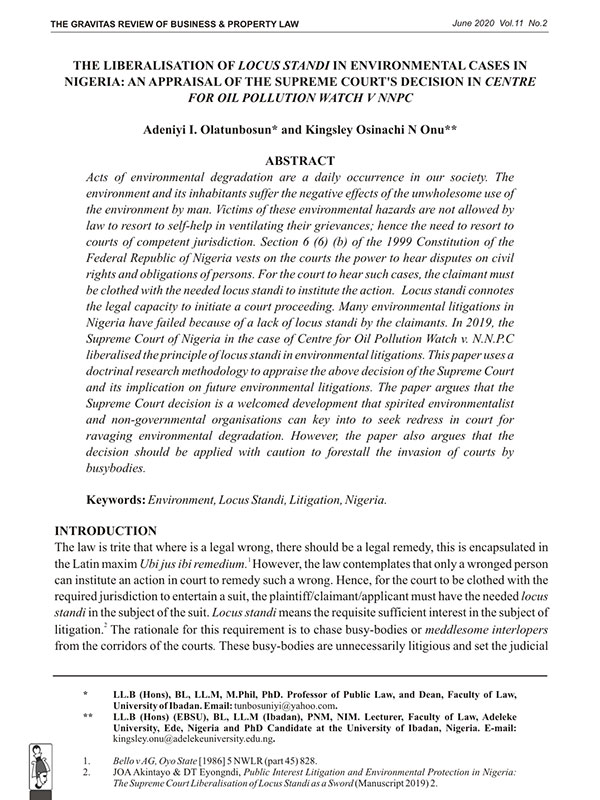
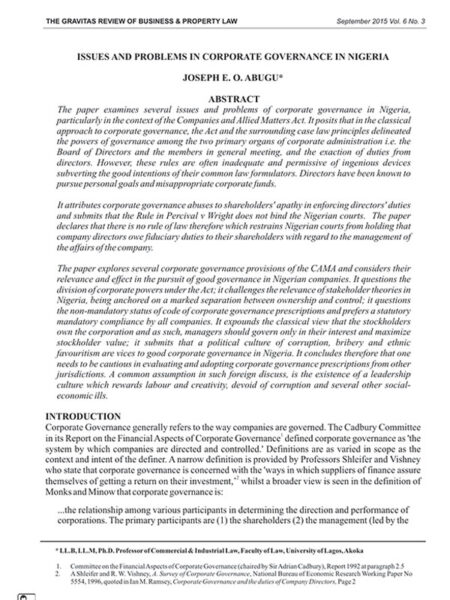
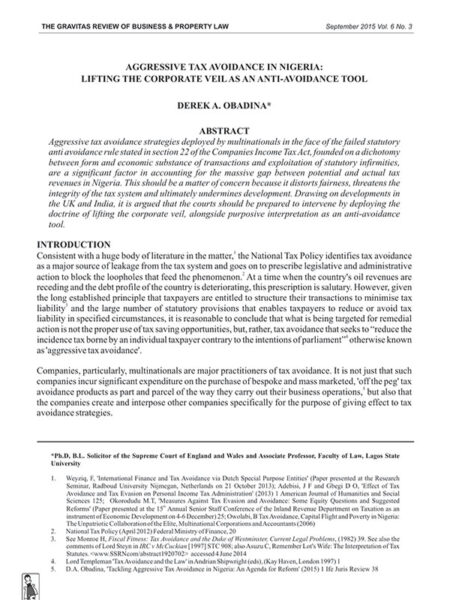
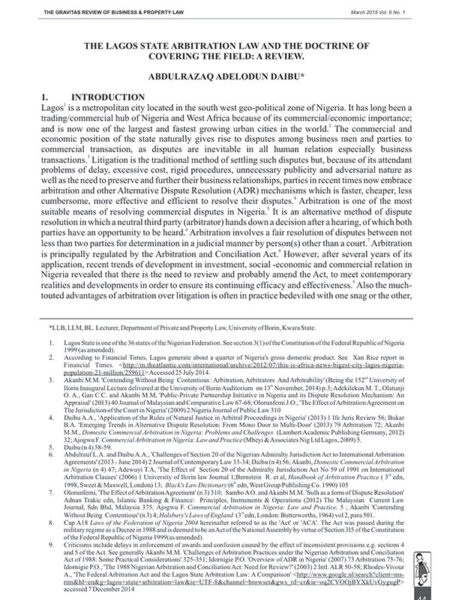
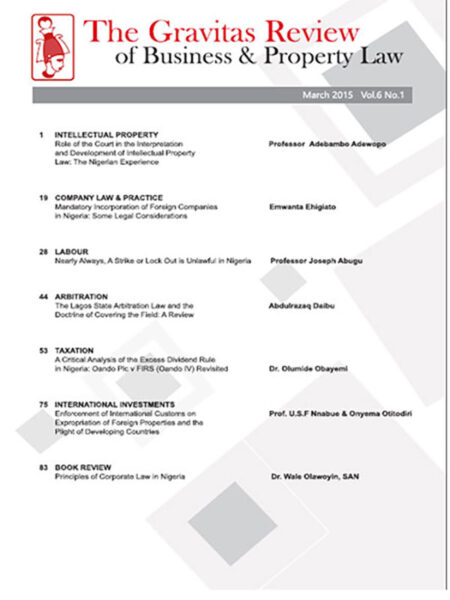
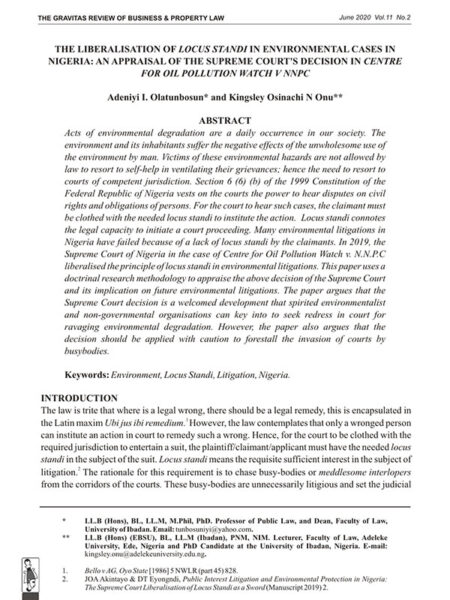
Reviews
There are no reviews yet.